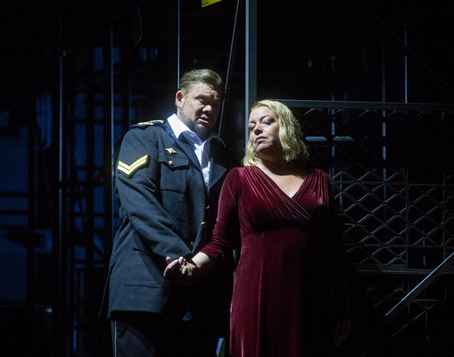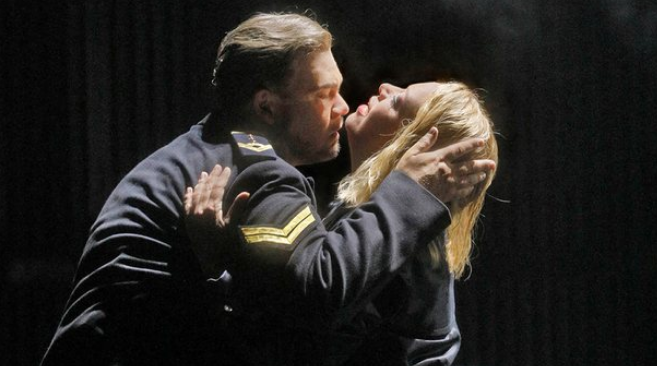The Sydney-born Heldentenor triumphs as the first ever Australian Tristan at the Metropolitan Opera.
Australian Heldentenor Stuart Skelton has triumphed at the Metropolitan Opera House with his performance as Wagner’s tortured operatic hero Tristan. Conducted by Sir Simon Rattle, Skelton became the first Australian to perform the demanding role at the Met whose new production of Tristan und Isolde headlines the 2016-2017 season.

Skelton, one of today’s finest Heldentenors, has met with considerable success over the past few years in the equally challenging roles of Otello and Siegmund. Now, the critics are lining up to praise his impressive portrayal of Tristan, and the impressive vocal power he brings to the role, honed by performances earlier this year in Baden Baden and at English National Opera in London. The Guardian praised the tenor’s “honey-voiced portrayal” of Tristan, while New York’s Observer was similarly impressed, writing that Skelton demonstrated the “vocal power and stamina ideal for the marathon role of Tristan”. The Wall Street Journal praised his Act III hallucinations as “entirely persuasive, even as he sang a succession of difficult monologues, and his tenor always sounded supported, without bellowing or pushing.”
“This production is lucky to have Stuart Skelton, who gives an honorable and courageous performance,” wrote Anthony Tommasini in the New York Times. “His muscular voice may lack some warmth and ping. But he sings with musical integrity and feeling. And he paced himself impressively during the long, arduous scene in Act III when Tristan, mortally wounded and delirious, back at his ancestral home in Brittany, awaits Isolde.”
The challenging new staging by the director Mariusz Trelinski, who was last seen at the Met directing a double bill of Iolanta and Bluebeard’s Castle, wasn’t to every critic’s taste, but all agreed that Skelton more than held his own against the “gorgeous” and “high-powered” Isolde of Nina Stemme. Trelinski’s production delves into Tristan’s childhood, drawing out the isolatation caused by the premature loss of his parents. According to first night commentary, Skelton embraced the challenges of the concept, demonstrating an array of emotions that created a detailed, complex portrait. In a role that is often overshadowed by the dramatic soprano playing Isolde, Skelton’s reading allowed for a deeper exploration of the eponymous duo at the heart of the opera.

Skelton has only recently assumed the demanding central role. His role debut as Tristan occurred at Baden Baden in March of this year and was very well regarded. He had similar success in London. “Skelton is an intelligent and focused singer. He handles emotional and musical nuance with ease, is always watchable, and most of all a singer who knows what his composer wants,” said Limelight’s reviewer of his performances at English National Opera. “Has it been worth the wait? Undoubtedly yes. Skelton will be much in demand to sing this role all over the world. Whatever a director makes him do or a designer makes him wear, his musical integrity and acting ability shine through and engage audiences in a unique way.”
For opera history buffs, Australian Wagner scholar Peter Bassett informed Limelight that the first Australian Isolde at the Met was Marjorie Lawrence, who sang the role opposite Lauritz Melchior in 1944, but there has not been an Australian Tristan until now.











Comments
Log in to join the conversation.